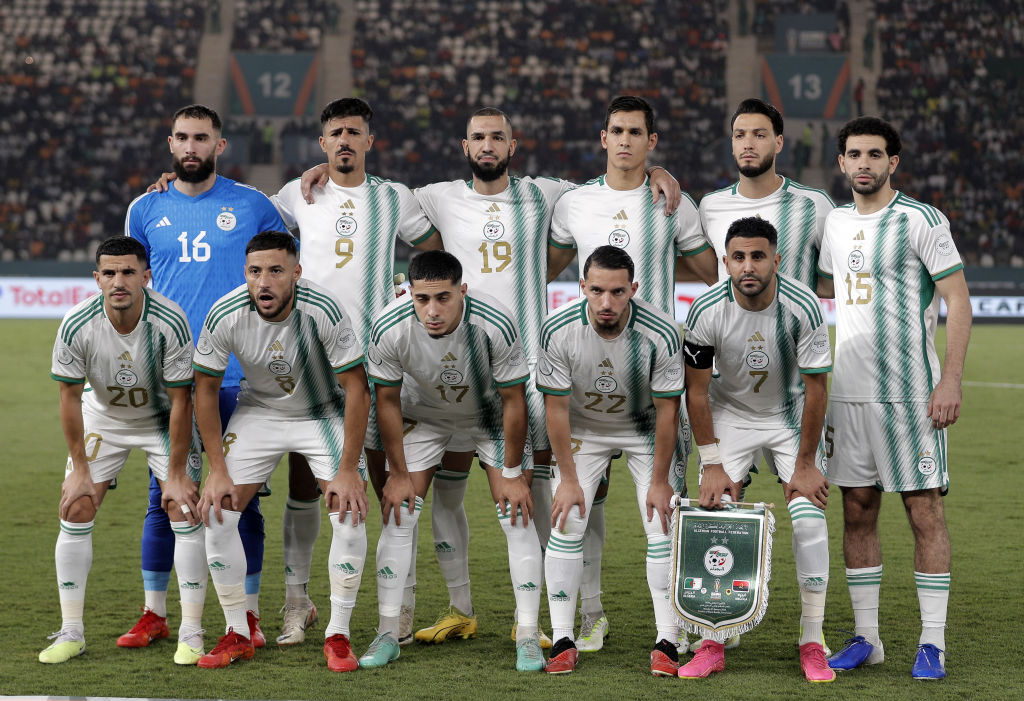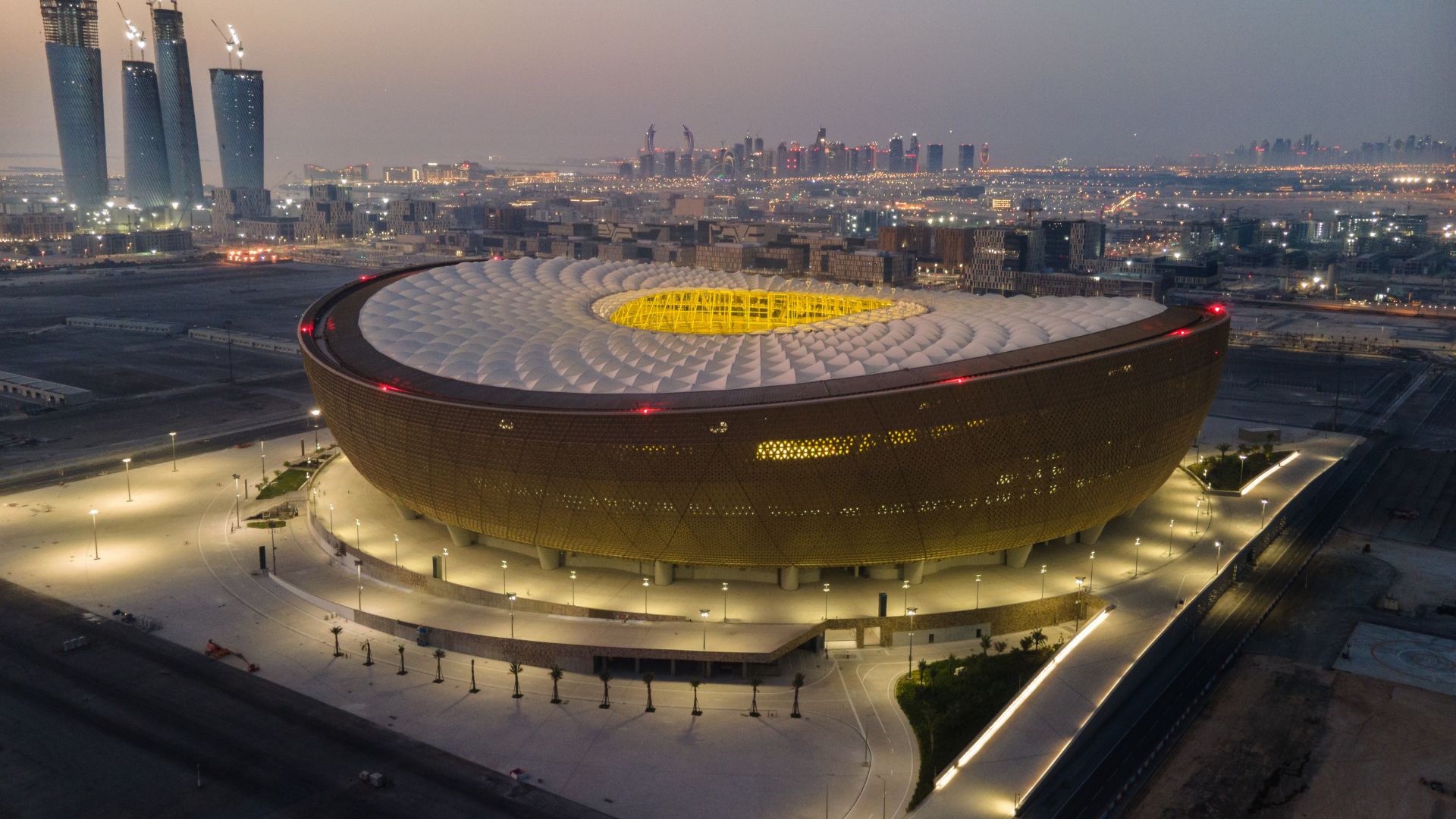
With an expanded World Cup on the horizon at the end of the season, the Africa Cup of Nations on the way in December and last summer's revamped Club World Cup in the rearview mirror, it's perhaps easy to lose track of FIFA's ever-growing slate of tournaments.
So with that in mind, we'll let you off if the FIFA Arab Cup has perhaps slipped off your radar when it comes to planning your football-watching schedule for the next few months.
First played in 1963, the Arab Cup has been something of a stop-start competition over the years, but after a revamp in 2021, the next edition is around the corner. FourFourTwo takes a look at all you need to know...
What is the FIFA Arab Cup?

The inaugural edition of the Arab Cup was organised by the Union of Arab Football Associations (UAFA) and played in Lebanon in 1963, with Tunisia lifting the trophy. Two more editions followed in 1964 and 1966 before the competition was shelved until 1985, when it was played five more times until 2012.
In 2021, FIFA brought the competition back, with Algeria defeating Tunisia in the final, which was played in Qatar, a year before the nation hosted the World Cup final.

Qatar will again be the host for what FIFA describe as the second edition of the competition, which kicks off on December 1, with the final taking place on December 18.
The tournament is played in six stadiums that hosted the 2022 World Cup, including the Lusail Stadium which will be the venue for the final.
The best features, fun and footballing quizzes, straight to your inbox every week.
Format-wise, a total of 16 teams from both the Asian Football Confederation (AFC) and the Confederation of African Football (CAF) will take part. Hosts Qatar and holders Algeria qualify automatically, as do the seven highest-ranked nations at the time of the draw, with the remaining places filled via a series of single-leg qualification matches which take place in November.
Who has qualified?
That means the following teams have qualified:
- Qatar (hosts)
- Algeria (defending champion)
- Egypt
- Iraq
- Jordan
- Morocco
- Saudi Arabia
- Tunisia
- United Arab Emirates
While the play-offs will be contested between:
Oman v Somalia
Bahrain v Djibouti
Syria v South Sudan
Palestine v Libya
Lebanon v Sudan
Kuwait v Mauritania
Yemen v Comoros
A post shared by Supreme Committee for Delivery & Legacy (@roadtoqatar_en)
A photo posted by on
FIFA Arab Cup draw
The draw was held in Doha in May, with teams put into four groups of four. The top two in each group will qualify for the knockout stage, which consists of quarter-finals, semi-finals and the final on December 18:
Group A: Qatar, Tunisia, Syria/South Sudan, Palestine/Libya
Group B: Morocco, Saudi Arabia, Oman/Somalia, Yemen/Comoros
Group C: Egypt, Jordan, United Arab Emirates, Kuwait/Mauritania
Group D: Algeria, Iraq, Bahrain/Djibouti, Lebanon/Sudan
Where to watch the FIFA Arab Cup
The 2025 FIFA Arab Cup is being aired by several broadcasters across the Middle East and North Africa.
- beIN Sports MENA
- Dubai Sports
- Abu Dhabi Sports TV
- Alkass
- Shasha
- Starzplay – free live stream for every game
Full details | How to watch the FIFA Arab Cup – Live streams, broadcasters
Get 75% off NordVPN + 3 months FREE
A good VPN is your ticket to the game, even when you’re abroad, unblocking the geo-restrictions on your favourite streaming services and keeping you safe online. NordVPN is the best, so say our expert colleagues at Tom's Guide and the good news is that NordVPN are currently offering an amazing deal.
We test and review VPN services in the context of legal recreational uses. For example: 1. Accessing a service from another country (subject to the terms and conditions of that service). 2. Protecting your online security and strengthening your online privacy when abroad. We do not support or condone the illegal or malicious use of VPN services. Consuming pirated content that is paid-for is neither endorsed nor approved by Future Publishing.
For more than a decade, Joe Mewis has worked in football journalism as a reporter and editor. Mewis has had stints at Mirror Football and LeedsLive among others and worked at FourFourTwo throughout Euro 2024, reporting on the tournament. In addition to his journalist work, Mewis is also the author of four football history books that include times on Leeds United and the England national team. Now working as a digital marketing coordinator at Harrogate Town, too, Mewis counts some of his best career moments as being in the iconic Spygate press conference under Marcelo Bielsa and seeing his beloved Leeds lift the Championship trophy during lockdown.
You must confirm your public display name before commenting
Please logout and then login again, you will then be prompted to enter your display name.
 Join The Club
Join The Club







